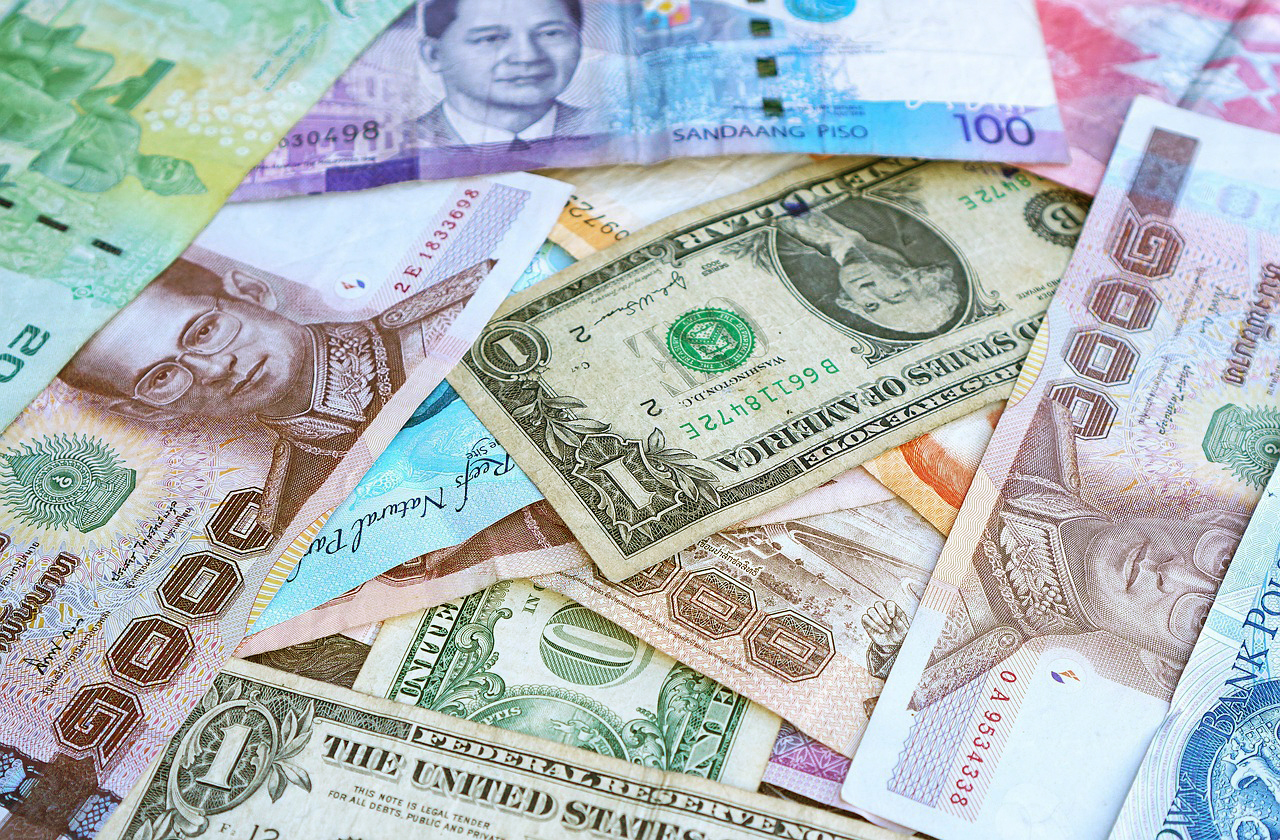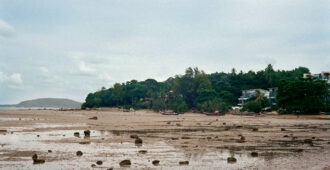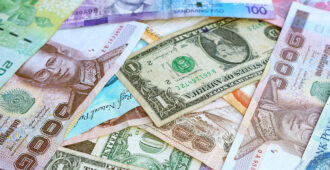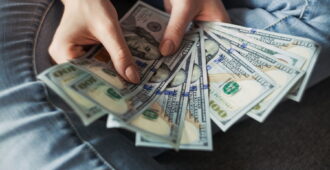- What is the currency in Thailand?
- The monetary unit of Thailand
- Currency exchange in Thailand
- Where is the best place to exchange money
- Currency exchange rates and commissions
- Use of bank cards in Thailand
- Accepting cards in stores and hotels
- Which cards work for Russian tourists?
- ATMs and cash withdrawals
- What you need to know about Thai coins and bills
- Safety tips for handling money in Thailand
- How to avoid currency exchange fraud
- Answers to popular questions about currency and money in Thailand
What is the currency in Thailand?
The national currency of Thailand is the Thai baht, denoted by the symbol ฿ and the code THB. The baht consists of 100 satangs, which makes it a fairly convenient currency for settlements. The Thai baht is the main unit of currency in the country, and unlike some other Asian countries, it is not customary to use foreign currencies for everyday purchases.
The Thai baht is one of the most stable currencies in the region, making it the preferred choice for locals and tourists. Both coins and banknotes of various denominations are in circulation.
The monetary unit of Thailand
The Thai baht as a monetary unit was introduced in the late 19th century and has since become firmly established as the country’s main means of exchange. Modern banknotes are issued in denominations of 20, 50, 100, 500 and 1000 baht, and coins in denominations of 1, 2, 5 and 10 baht, as well as 25 and 50 satang.
Each banknote and coin has a different color and size, making them easy to use. The banknotes depict the kings of Thailand, including King Rama IX, who has long been a symbol of the country’s stability. It is worth noting that Thais are very reverent about their money, as it depicts the king, who is revered as a spiritual leader in Thailand. Therefore, it is not allowed to crumple or tear banknotes.


Currency exchange in Thailand
Where is the best place to exchange money
Currency exchange in Thailand is possible almost everywhere. You can exchange your rubles, dollars or euros for baht in banks, exchange offices, as well as in hotels and shopping centers. The most favorable exchange rates, as a rule, offer specialized street exchange offices and exchangers in large shopping centers. Avoid exchanging currency at airports and hotels, as the exchange rates there are usually less favorable.
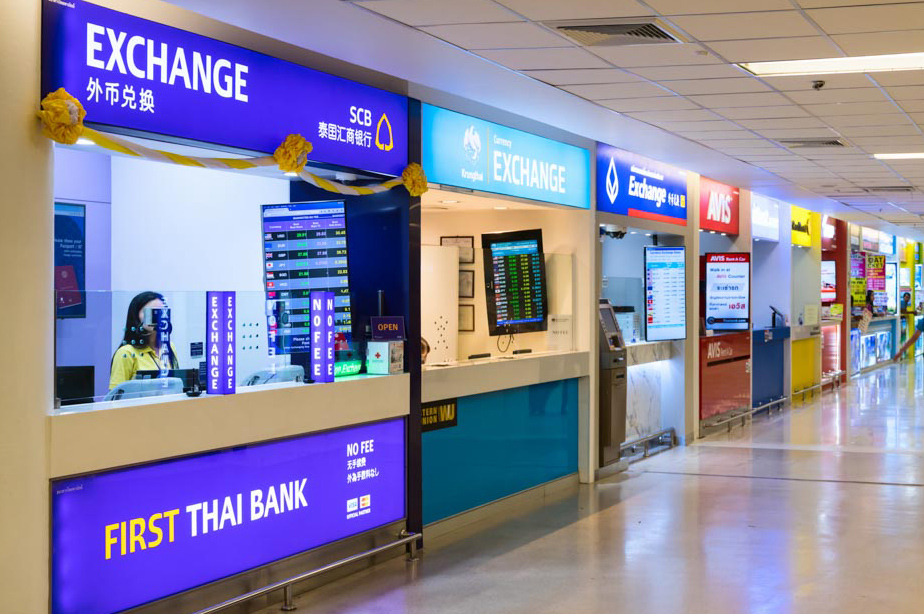
Currency exchange rates and commissions
The exchange rate in Thailand can vary depending on the location and time of exchange. For example, in the central areas of Bangkok and the tourist areas of Phuket, exchange rates may be slightly lower than in less touristy areas. Most exchange offices do not charge exchange fees, but banks may apply additional fees.
In order to avoid unpleasant surprises, it is best to check the current exchange rate for your currency and compare it with the offers of different exchangers before exchanging currency. You can also use online currency calculators to get accurate information.
Use of bank cards in Thailand
Accepting cards in stores and hotels
International bank cards such as Visa and Mastercard are widely accepted in Thailand. Cards can be used in most hotels, restaurants and large stores. However, in small cafes, markets and street vendors, cash is preferred. It is important to note that currency conversion fees may apply when using cards, especially if your card is not from a Thai bank.
Which cards work for Russian tourists?
После введения санкций против России, использование международных карт Visa и Mastercard, выпущенных российскими банками, стало невозможным. Это создало сложности для российских туристов в Таиланде, которые привыкли использовать эти карты для оплаты. Однако есть несколько альтернатив:
- UnionPay cards: Cards from the Chinese payment system UnionPay are widely accepted in Thailand. Some Russian banks offer UnionPay cards that can be used for payments and cash withdrawals in Thailand.
- Cards from foreign banks, such as cards from Kazakhstan, Uzbekistan and other neighboring countries.
ATMs and cash withdrawals
ATMs are ubiquitous in Thailand, especially in tourist areas. You can easily withdraw cash in Thai Baht using an international bank card. However, it is worth remembering that most ATMs charge a fee for each transaction, which can range from 150 to 220 baht. Therefore, it makes sense to withdraw large amounts at once to minimize the cost of the commission.
Tip: Choose ATMs located in banks, as they are more protected against fraud.
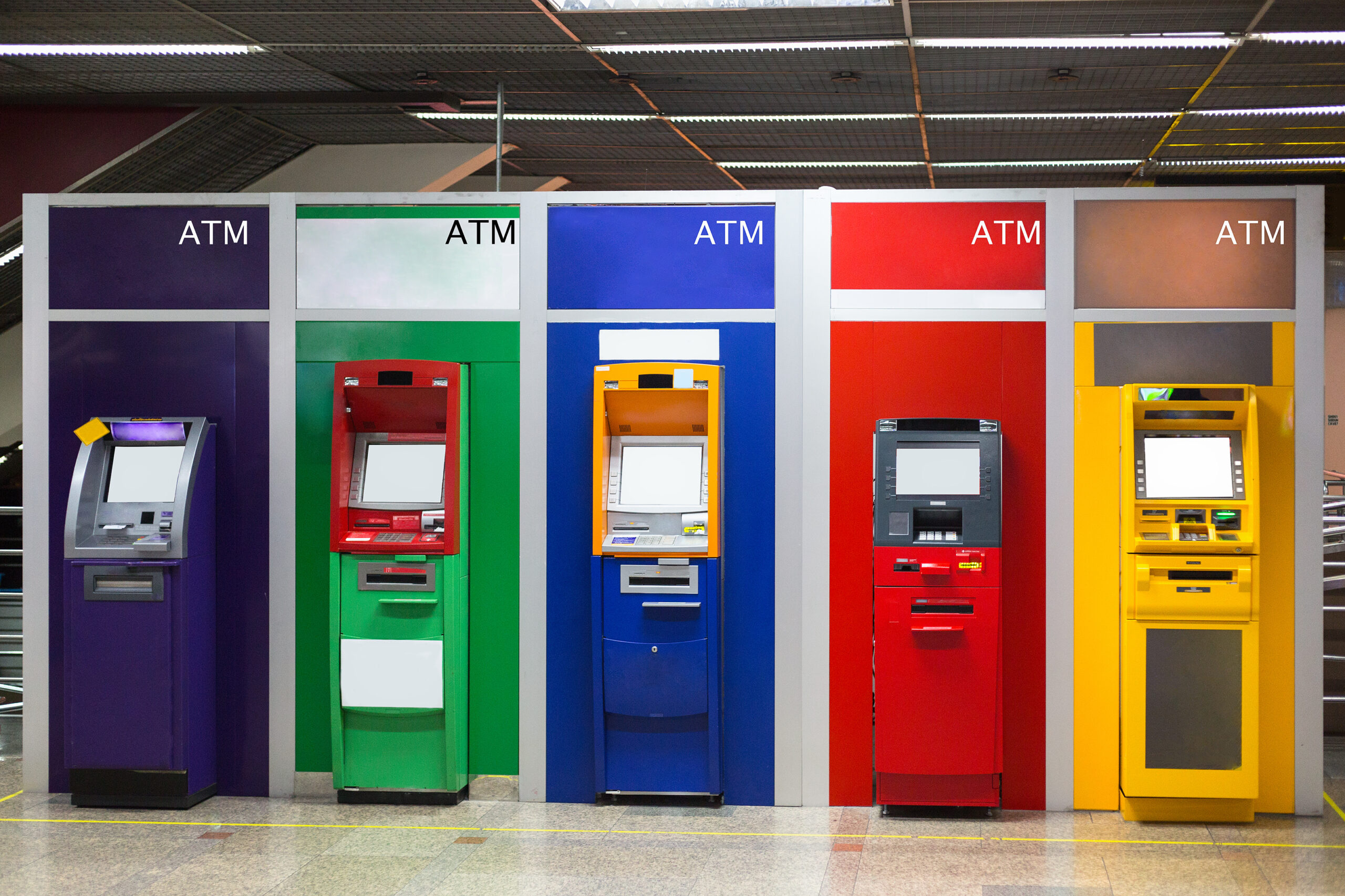
What you need to know about Thai coins and bills
Thai coins and banknotes, as already mentioned, vary in denomination, color and size. Coins and banknotes of 1, 2, 5 and 10 baht are the most common and are used to pay for small purchases. Banknotes in denominations of 20, 50 and 100 baht are the most convenient for everyday expenses, while 500 and 1000 baht are used for large purchases or cash withdrawals from ATMs.
It is important to remember that in Thailand it is not customary to exchange large bills for small ones in stores, especially in small stores and markets. It is better to prepare the necessary amount of small bills or coins in advance.

Safety tips for handling money in Thailand
To handle money safely in Thailand, it is important to follow a few simple rules:
- Separate your money: Don’t carry all your cash in one place. Divide your money into several parts and keep them in different pockets or bags.
- Use safes: If you are staying in a hotel, keep large sums of money in a safe.
- Be careful when exchanging currency: Always count the money after the exchange and check the exchange rate before the transaction.
- Avoid using ATMs in secluded locations: For cash withdrawals, choose ATMs located in banks or large shopping centers.
How to avoid currency exchange fraud
To avoid currency exchange scams in Thailand, follow these tips:
- Choose trusted exchangers: Use exchange offices located in large shopping centers or belonging to well-known chains.
- Avoid street money changers: In Thailand, you may find unofficial money changers with questionably favorable rates. It is best to avoid these places.
- Check the bills: After the exchange, be sure to count the money and check it for authenticity. Pay attention to the watermarks and the texture of the paper.
- Be careful: If the exchange rate seems too favorable, it may be a trap. It is better to check the terms of the deal several times before agreeing to it.

Answers to popular questions about currency and money in Thailand
What is the best currency to take to Thailand?
It is best to take dollars or euros with you, as it is easier to exchange them for baht at a favorable rate. Rubles can also be exchanged, but the rate will be very unfavorable.
Can I use cards in Thailand?
Yes, Visa and Mastercard bank cards are widely accepted in hotels, restaurants and stores. However, it is better to use cash in markets and small establishments. Mir cards do not work in Thailand.
Are there restrictions on importing and exporting foreign currency from Thailand?
There are no restrictions on the import and export of foreign currency, but amounts exceeding the equivalent of USD 20,000 must be declared.
How can I find out the current exchange rate?
You can find out the current exchange rate at banks, exchange offices or online currency calculators, as well as on the Internet on the websites of popular banks such as Kasikorn, SCB, Krungthai and others.
Conclusion
Knowing how to handle money in Thailand will help you avoid unpleasant situations and make your stay in this country comfortable and safe. Be careful, choose reliable exchange offices, and your vacation will go without unnecessary worries.


